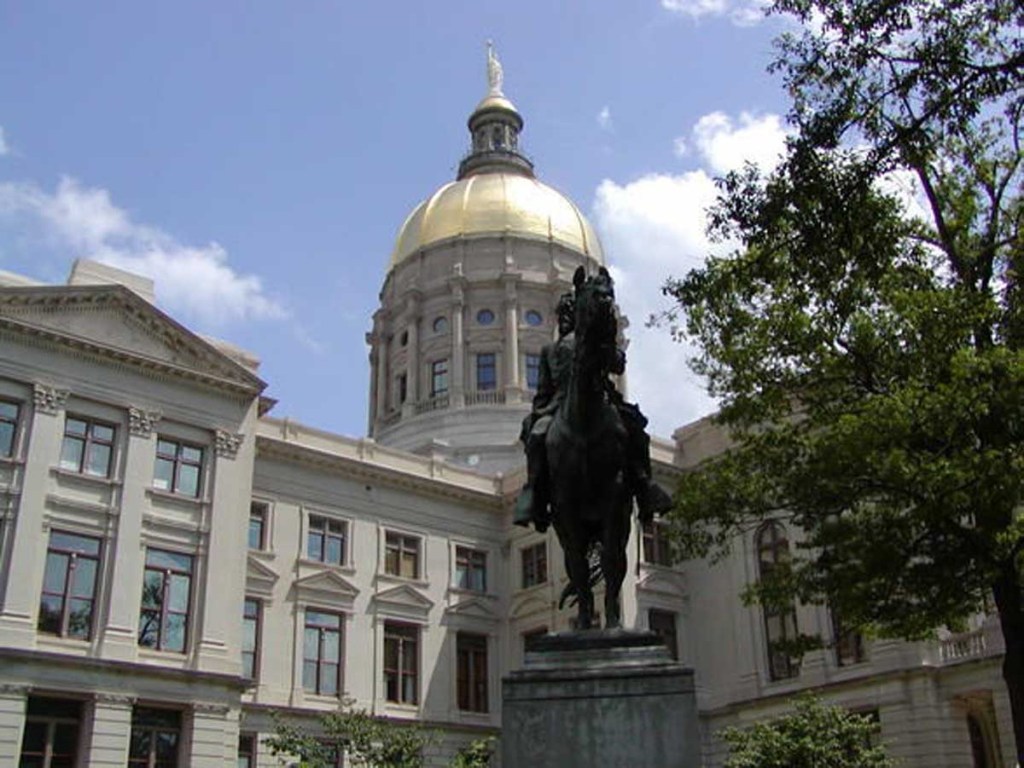Outside money sways Georgia’s House race
Published 8:15 am Friday, June 23, 2017

- Georgia State Capitol
ATLANTA — Kevin Webb grew increasingly wary of Democrat Jon Ossoff as the candidate’s war chest swelled from the support of donors across the country.
“At some point, you have to look and say, ‘Where’s the money coming from?’” Webb said as he left his voting precinct Tuesday in the closely watched District 6 race, which is now the costliest U.S. House race in history.
“So for me, the fact that so much money came from outside the district is a red flag,” Webb said.
Ossoff has so far reported raising more than $23 million over the course of his campaign, which he launched with a call to “make Trump furious.” His Republican opponent, and the victor Tuesday evening, Karen Handel raised about $4 million.
His candidacy drew national support from Democrats hoping to send a message to President Donald Trump, although the 30-year-old investigative filmmaker and political newcomer softened his approach later in the campaign.
The special election to replace Tom Price, who is now the secretary of Health and Human Services, was also widely seen as the Democrats’ best shot at flipping a House seat early in Trump’s presidency.
Trump only won the district by 1.5 percentage points in November. Mitt Romney, by comparison, easily won the district by 23 points just four years earlier.
Ossoff nearly won the open race outright in April with 48 percent of the vote, but he wasn’t able to improve on that and Handel won Tuesday’s run-off by nearly 4 points.
That is about the same margin of victory in another special election held that same day in South Carolina to replace Trump’s budget director, Mick Mulvaney — a race that didn’t garner nearly as much attention.
“Democrats have thought often that if they could increase turnout, they could do better,” said Charles S. Bullock III, a political science professor at the University of Georgia. “But it looks like for every new Democrat who turned out to vote, there was a new Republican who showed up and voted.”
The result was unusually high voter turnout for a special election run-off. Nearly 260,000 people voted on Tuesday, or about 58 percent of the district’s registered voters. Stunningly, about 66,000 more people voted Tuesday than did in April.
All said, Republicans have been able to hold on to four House seats vacated by Trump appointments. The president hailed the sweep as a victory, saying this at a Wednesday rally in Iowa: “The truth is, people love us.”
In Georgia, Handel was able to convince Republicans of what was at stake, Bullock said.
“Her message to Republicans was, ‘Regardless of how you may feel about Donald Trump, it’s important that Republicans hold onto this seat,’” Bullock said.
Handel frequently tied Ossoff to Minority Leader Nancy Pelosi and reminded voters often her opponent does not live in the district and that much of his funding came from elsewhere. The former Georgia secretary of state noted Ossoff’s inexperience while highlighting her own years of public service.
Ossoff tried to paint Handel as a career politician and pitched himself as a moderate Democrat who would focus on building up Atlanta’s tech economy.
About half of the estimated $60 million that poured into the race was controlled by outside groups, such as political action committees from both sides that released a deluge of attack ads.
Republicans succeeded Tuesday, but the results should leave them uneasy, said Kenneth Ellinger, a political science professor at Dalton State College.
Handel’s 4-point margin of victory over Ossoff may have been greater than polls suggested was likely, but it is still a far cry from Price’s 23-point landslide just seven months ago, Ellinger noted.
“Here’s this unknown guy running against as big of an establishment Republican as there is in Georgia, with all the name recognition and all the experience, and she still limps to a very narrow victory in a district that is normally as solidly Republican as you can find in the United States,” he said.
This means dozens of other districts that have typically been reliably red are now vulnerable, he said.
“There’s no question that Trump has weakened the Republican Party in wealthy, suburban districts where you have a lot of college educated, professional people who are Republican,” Ellinger said.
From the local perspective, though, the election wasn’t so closely tied to the controversial commander in chief.
“What’s going on in the executive branch has zero impact on what my decision is here,” said Webb, who described himself as a right-leaning voter who voted for Handel, even though she wasn’t his first choice.
Some Ossoff voters, on the other hand, said they were more motivated to vote by Handel’s record, which includes a 2012 decision to cut funding to Planned Parenthood when she was was an executive at the Susan G. Komen.
“In many ways, I would say it’s because I’m more opposed to Karen Handel than anything else,” said Maria Thacker-Goethe, a Dekalb County voter who says she typically supports Democrats.
Although, she added, that Trump’s presidency ensured she would not sit out the election.
About 39 percent of voters said their decision was in, part, meant to express opposition to Trump, according to an Atlanta Journal-Constitution poll conducted this month.
A little less than half said Trump was not a factor in their decision, while 14 percent said their vote, in part, was intended to show their support for the president.
Nanci Kinser, a Cobb County voter who wore a bright red “Georgia for Trump” shirt to the polls, said it was important to her that Trump have more people on his side so he “accomplish the good things that he wants to do.”
“God knows he has enough people fighting him,” she said.
Jill Nolin covers the Georgia Statehouse for CNHI’s newspapers and websites. Reach her at jnolin@cnhi.com.



